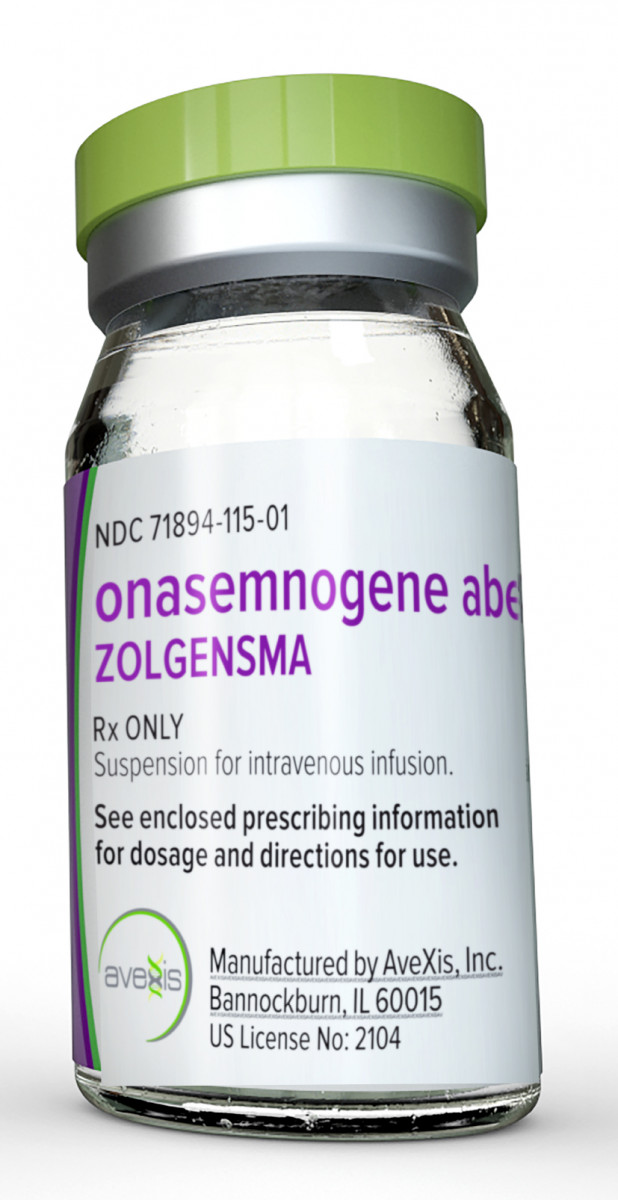AveXis Knew of ‘Manipulated’ Data in Zolgensma Application and Failed to Inform FDA, Agency Says
Written by |

handout photo
AveXis, the company that developed the gene therapy Zolgensma to treat spinal muscular atrophy (SMA), knew of “data manipulation issues” that led to inaccuracies in its application to the U.S. Food and Drug Administration prior to the treatment’s approval, but failed to inform regulators until more than a month later, the FDA announced.
There are no concerns the manipulation affects Zolgensma’s quality or should limit its availability.
The agency, in a statement issued by Peter Marks, director of its Center for Biologics Evaluation and Research, said the problematic data concerns product testing on animals that was only a “small portion” of the “large amount of submitted information” reviewed prior to its May 24 decision favoring Zolgensma to treat SMA in children up age 2.
The FDA was told by AveXis of the manipulated data and inaccuracies on June 28. According to one report, the company learned of the problem on March 14.
Zolgensma’s safety and effectiveness is not in question, Marks said, with “the totality of the evidence” favoring both.
Although the FDA “remains confident that Zolgensma should remain on the market,” it considers the matter very serious, as AveXis “became aware of the issue … before the FDA approved the product, yet did not inform the FDA until after the product was approved.” AveXis, now part of Novartis, could face fines or other penalties.
“Ensuring truthful, complete and accurate data in product applications is a critical component of industry’s responsibility as they work to demonstrate the safety, purity, and potency of biological products,” Marks said, adding the FDA is studying the issue and “will use its full authorities to take action, if appropriate, which may include civil or criminal penalties.”
Data in question concerned early animal tests using older and newer versions of the therapy. Those test results are “not currently used for commercial product release,” AveXis said in a statement, adding it informed the FDA of the manipulation once it and Novartis had “interim conclusions from our investigations.”
“First and foremost, we are fully confident in the safety, quality and efficacy of Zolgensma,” AveXis said. “At no time during the investigation did the findings indicate issues with product safety, efficacy or quality. We remain fully capable of releasing high-quality, fully compliant Zolgensma to patients in need.”
Both companies are working with the FDA in its investigation, and do not expect the issue to affect future requests for broader approval of Zolgensma based on clinical trials and a development program now underway, AveXis said.
Zolgensma carries a list price of $2.125 million, and as such is considered to be the most expensive single drug on the world market. But, as a gene therapy, it also is thought to be a one-time treatment.
Zolgensma works by bringing a functional copy of the SMN1 gene, which is mutated in people with SMA, to motor nerve cells and restore SMN protein production at levels these cells need to survive and ensure muscle health.
The FDA recently inspected Zolgensma’s production process, Marks said, and information gathered will be part of a “thorough assessment” now underway.






